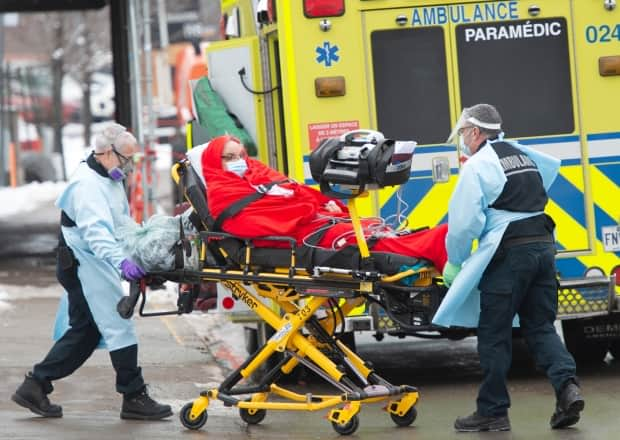Researchers tout 'major scientific discovery' in $14M study for COVID-19 treatment
Nearly a year after launching a clinical study into a potential COVID-19 treatment, researchers with the Montreal Heart Institute suggest a widely available anti-inflammatory drug is effective in helping people stay away from hospitals and survive the disease.
Nearly 4,500 people took part in a study that's led to what the researchers are calling "a major scientific discovery."
During the study, researchers found that colchicine reduced the chance of death or hospitalization by 21 per cent when compared to a placebo. That number went up when specifically looking at the pool of about 4,200 participants whose COVID-19 diagnoses were confirmed by a polymerase chain reaction (PCR) test.
Within that group, researchers say colchicine reduced hospitalizations by 25 per cent and deaths by 44 per cent. They also found the drug helped cut the need for mechanical ventilation by 50 per cent.
"These results are substantial, they are robust, and we believe are compelling to justify the use of the colchicine," said Dr. Jean-Claude Tardif, director of the Montreal Heart Institute's research centre.
"I believe this will have a fairly swift impact on how we practice medicine for patients that have COVID and are not yet hospitalized."

The study, called COLCORONA, was launched last March and cost $14 million.
It includes hundreds of subjects whose COVID-19 diagnoses were not confirmed by PCR tests because those tests were not as widespread at the time, Tardif said.
Tardif also said the initial goal was to recruit 6,000 participants, but researchers settled on a lower number due to the urgency of the situation.
"The beauty of colchicine is it's already available in pharmacies. So, if a physician reads this today, and has a patient that is at risk of complications, that physician can very well prescribe colchicine today," Tardif said. "This is the reason we felt compelled to alert the population and the medical community immediately about these findings."
Researchers are preparing to publish their findings in a scientific journal.
The study was funded by the Quebec government and several other organizations, and was carried out without contact, with participants from Canada, the United States, South America and South Africa remaining at home.

